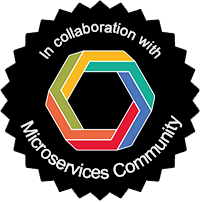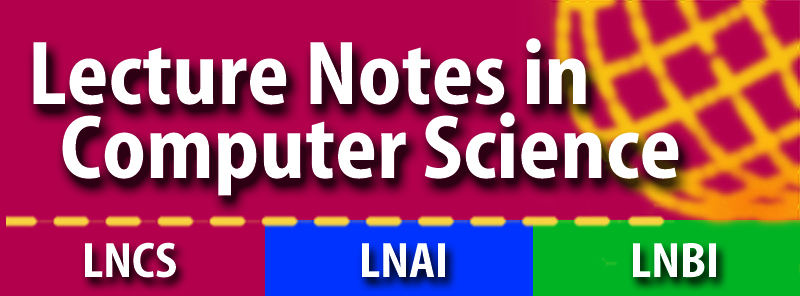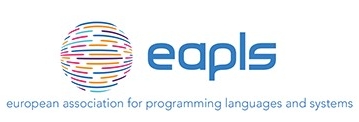COORDINATION 2022 - 24th International Conference on Coordination Models and Languages
COORDINATION 2022 is one of the three conferences of DisCoTec 2022.
COVID-19
COORDINATION 2022 is planned as a physical, in-person event, with certain support for remote presence, both for speakers and for other participants who are unable or unwilling to come. Depending on the pandemic situation, we may have to make a decision whether to cancel the physical component of the event or not.
Scope
Modern information systems rely increasingly on combining concurrent, distributed, mobile, adaptive, reconfigurable and heterogeneous components. New models, architectures, languages and verification techniques are necessary to cope with the complexity induced by the demands of today’s software development. Coordination languages have emerged as a successful approach, in that they provide abstractions that cleanly separate behaviour from communication, therefore increasing modularity, simplifying reasoning, and ultimately enhancing software development. Building on the success of the previous editions, this conference provides a well-established forum for the growing community of researchers interested in models, languages, architectures, and implementation techniques for coordination.
Main topics
Topics of interest encompass all areas of coordination, including (but not limited to) coordination related aspects of:
- Theoretical models and foundations for coordination: component composition, concurrency, mobility, dynamic, spatial and probabilistic aspects of coordination, logic, emergent behaviour, types, semantics;
- Specification, refinement, and analysis of architectures: patterns and styles, verification of functional and non-functional properties, including performance and security aspects;
- Dynamic software architectures: distributed mobile code, configuration, reconfiguration, networked computing, parallel, high-performance and cloud computing;
- Nature- and bio-inspired approaches to coordination;
- Coordination of multi-agent and collective systems: models, languages, infrastructures, self-adaptation, self-organisation, distributed solving, collective intelligence and emerging behaviour;
- Coordination and modern distributed computing: web services, peer-to-peer networks, grid computing, context-awareness, ubiquitous computing, mobile computing;
- Coordination platforms for infrastructures of emergent new application domains like IoT, fog- and edge-computing;
- Cybersecurity aspects of coordinated systems, coordinated approaches to cybersecurity;
- Programming methodologies, languages, middleware, tools, and environments for the development and verification of coordinated applications;
- Tools, languages and methodologies for secure coordination;
- Industrial relevance of coordination and software architectures: programming in the large, domain-specific software architectures and coordination models, case studies;
- Interdisciplinary aspects of coordination;
- Industry-led efforts in coordination and case studies.
Special topic
We seek contributions that enable the cross-fertilisation with other research communities in computer science or in other engineering or scientific disciplines. Depending on the quality of the contributions, we plan to have dedicated sessions in the program, possibly together with a panel discussion.
-
Microservices (in collaboration with the Microservices Community)
The microservices architectural style is a recent paradigm that pushes the ideas of service-oriented computing to the extreme. In this style, applications are compositions of microservices: loosely-coupled entities that can be executed independently. A microservice should be small enough to be easily managed, modified, and if needed removed and rewritten from scratch. The aim is to obtain high flexibility, reconfigurability, and scalability, thanks also to the exploitation of container technologies (such as Docker). In this setting, coordination is essential: an application works only if the microservices coordinate well with each other, in order to reach their common goal. Establishing coordination techniques for obtaining the desired behaviour out of a system of microservices is therefore of the utmost importance.

Contacts: Ivan Lanese (ivan.lanese@unibo.it) and Fabrizio Montesi (fmontesi@imada.sdu.dk)
Tool papers
We welcome tool papers that describe experience reports, technological artefacts and innovative prototypes (including engines, APIs, etc.), for coordinating, modelling, analysing, simulating or testing systems, as well as educational tools in the scope of the research topics of COORDINATION. In addition, we welcome submissions promoting the integration of existing tools relevant to the community. Submissions to the tool track must include (in addition to the paper) a link to a demo video that previews the potential tool presentation at the conference.
Submissions
Important dates
- Abstract submission:
January 28, 2022February 11, 2022 (extended) - Paper submission:
February 4, 2022February 18, 2022 (extended) - Paper notification: March 25, 2022
- Artefact submission: April 6, 2022
- Artefact notification: April 24, 2022
- Camera-ready: April 24, 2022
- DisCoTec conference: June 13-18, 2022
Deadlines expire at 23:59 anywhere on earth on the dates displayed above.
Submission site
https://easychair.org/conferences/?conf=coordination2022
Publication
Authors are invited to submit papers electronically in PostScript or PDF using a two-phase online submission process. Registration of the paper information and abstract (max. 250 words) must be completed according to the above submission dates and submissions are handled through the EasyChair conference management system, accessible from the above submission site.
Contributions must be written in English and report on original, unpublished work not submitted for publication elsewhere (cf. IFIP’s Author Code of Conduct, see http://www.ifip.org/ under Publications/Links). The submissions must not exceed the total page number limit (see below) prepared using Springer’s LNCS style. Submissions not adhering to the above specified constraints may be rejected without review.
NOTE: a lightweight rebuttal will be introduced during the reviewing phase, allowing reviewers to ask for a quick rebuttal in case of a clearly identifiable issue that seems decisive for the review outcome and which can likely be quickly clarified by the authors. The rebuttal is only used when such questions arise, so not necessarily for all papers.
Submission categories:
- Regular long papers (7-15 pages, not counting references): describing thorough and complete research results and experience reports.
- Regular short papers (4-6 pages, not counting references): describing research in progress or opinion papers on the past of COORDINATION research, on the current state of the art, or on prospects for the years to come.
- Short tool papers (4-6 pages, not counting references): describing technological artefacts in the scope of the research topics of COORDINATION. Short tool papers are not required to provide an account of theoretical foundations and are not required to present the design and implementation concerns. They should provide a clear account of the tool’s functionality and discuss the tool’s practical capabilities. The paper must contain a link to a publicly downloadable MPEG-4 demo video of at most 10 minutes length.
- Long tool papers (7-15 pages, not counting references): describing technological artefacts in the scope of the research topics of COORDINATION. A full-length tool paper should provide a brief account of the theoretical foundations (including relevant citations), present the design and implementation concerns (possibly including software architecture and core data structures), provide a clear account of the tool’s functionality, discuss the tool’s practical capabilities (possibly with reference to the type and size of problems it can handle), and (when applicable) report on realistic case studies (possibly providing a rigorous experimental evaluation). Papers that present extensions to existing tools should clearly describe the improvements or extensions with respect to previously published versions of the tool (possibly providing data on enhancements in terms of resources and capabilities). The paper must contain a link to a publicly downloadable MPEG-4 demo video of at most 10 minutes length.
- Survey papers (16-25 pages, not counting references): describing important results and success stories that originated in the context of COORDINATION.
ATTENTION: if you believe that your submission is related to the special topic Microservices, then please indicate Microservices as the first of the Author keywords in the online submission system.
Proceedings
The conference proceedings, formed by accepted submissions from any category, will be published by Springer in LNCS-IFIP volumes.

Special issues
Following the tradition of previous editions of COORDINATION, depending on the quality and number of the submissions, we will organise special issues of selected papers in reputable journals like the journal of Science of Computer Programming’s Software Track for tool papers and the journal of Logical Methods in Computer Science for the remaining categories.
EAPLS Artefact Badging
To improve and reward reproducibility and to give more visibility and credit to the effort of tool developers in our community, authors of accepted (regular and tool, short and long) papers will be invited to submit publicly available (using permanent repositories such as Software Heritage, Zenodo, etc.) artefacts associated with their paper for evaluation, and based on the result of the evaluation they may be awarded one or more badges. See EAPLS Artifact Badges for details. Artefact submission is optional and the result of the artefact evaluation will not alter the paper’s acceptance decision. Detailed guidelines for the preparation and submission of the artefacts will be made available.
Keynote speaker
- Luca Viganò, King’s College London, UK
Program Committee chairs
- Maurice ter Beek (ISTI-CNR, Pisa, Italy)
- Marjan Sirjani (Mälardalen University, Sweden)
Tool track chair
- Ferruccio Damiani (University of Turin, Italy)
Program Committee
- Erika Ábrahám (RWTH Aachen University, Germany)
- Davide Basile (ISTI-CNR, Italy)
- Simon Bliudze (INRIA, France)
- Marcello Bonsangue (Leiden University, The Netherlands)
- Ornela Dardha (University of Glasgow, UK)
- Patricia Derler (National Instruments, USA)
- Adrian Francalanza (University of Malta, Malta)
- Vashti Galpin (University of Edinburgh, UK)
- Fatemeh Ghassemi (University of Tehran, Iran)
- Einar Broch Johnsen (University of Oslo, Norway)
- Christine Julien (University of Texas at Austin, USA)
- Narges Khakpour (Linnaeus University, Sweden)
- eva Kühn (Vienna University of Technology, Austria)
- Ivan Lanese (University of Bologna, Italy)
- Alberto Lluch Lafuente (Technical University of Denmark, Denmark)
- Michele Loreti (University of Camerino, Italy)
- Mieke Massink (ISTI-CNR, Italy)
- Hernán Melgratti (University of Buenos Aires, Argentina)
- Fabrizio Montesi (University of Southern Denmark, Denmark)
- José Proença (Polytechnic Institute of Porto, Portugal)
- Rosario Pugliese (University of Florence, Italy)
- Cristina Seceleanu (Mälardalen University, Sweden)
- Meng Sun (Peking University, China)
- Carolyn Talcott (SRI International, USA)
- Hugo Torres Vieira (Evidence Srl, Italy)
- Emilio Tuosto (Gran Sasso Science Institute, Italy)
- Mirko Viroli (University of Bologna, Italy)
Artefact Evaluation Committee
- Gianluca Aguzzi (University of Bologna, Italy)
- Giorgio Audrito (University of Torino, Italy)
- Roberto Casadei (University of Bologna, Italy)
- Guillermina Cledou (University of Minho, Portugal)
- Giovanni Fabbretti (INRIA, France)
- Fabrizio Fornari (University of Camerino, Italy)
- Danilo Pianini (University of Bologna, Italy)
- Lorenzo Rossi (University of Camerino, Italy)
- Larisa Safina (INRIA, France)
- Alceste Scalas (Technical University of Denmark, Denmark)
Steering Committee
- Gul Agha (University of Illinois at Urbana Champaign, USA)
- Farhad Arbab (CWI and Leiden University, The Netherlands)
- Simon Bliudze (INRIA Lille, France)
- Laura Bocchi (University of Kent, UK)
- Ferruccio Damiani (University of Turin, Italy)
- Ornela Dardha (University of Glasgow, UK)
- Wolfgang De Meuter (Vrije Universiteit Brussels, Belgium)
- Rocco De Nicola (IMT School for Advanced Studies Lucca, Italy)
- Giovanna di Marzo Serugendo (Université de Genève, Switzerland)
- Tom Holvoet (KU Leuven, Belgium)
- Jean-Marie Jacquet (University of Namur, Belgium)
- Christine Julien (University of Texas at Austin, USA)
- eva Kühn (Vienna University of Technology, Austria)
- Alberto Lluch Lafuente (Technical University of Denmark, Denmark)
- Michele Loreti (Università di Camerino, Italy)
- Mieke Massink (ISTI-CNR, Pisa, Italy) - chair
- José Proença (CISTER, ISEP, Portugal)
- Rosario Pugliese (Università di Firenze, Italy)
- Hanne Riis Nielson (Technical University of Denmark, Denmark)
- Marjan Sirjani (Mälardalen University, Sweden)
- Carolyn Talcott (SRI International, California, USA)
- Emilio Tuosto (Gran Sasso Science Institute, Italy)
- Vasco T. Vasconcelos (University of Lisbon, Portugal)
- Mirko Viroli (Università di Bologna, Italy)
- Gianluigi Zavattaro (Università di Bologna, Italy)

